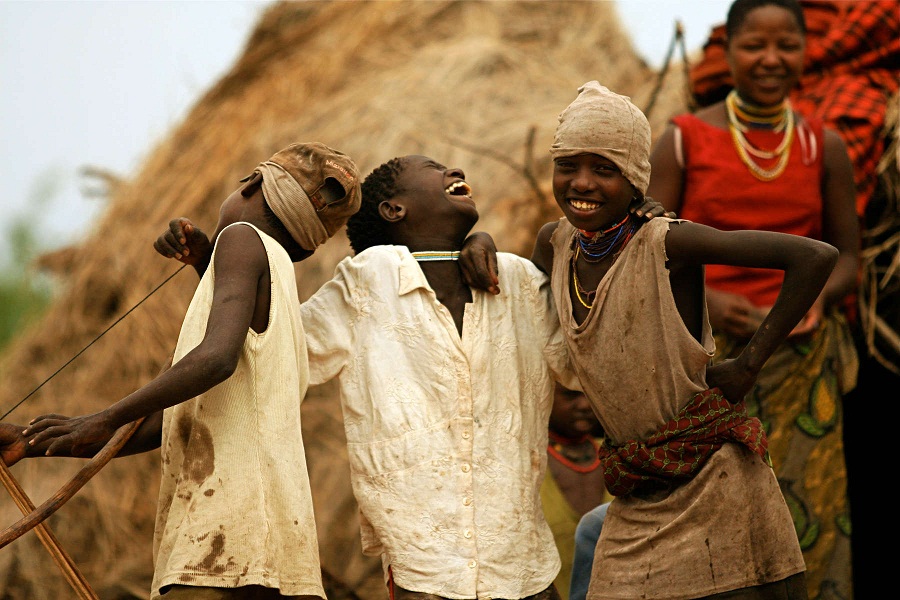
Published :
Updated :

For most of human history, we have been hunter-gatherers. Only in the last couple of thousands of years have we started domesticating animals and leaving our hunter-gatherer lifestyle. We have only used technology to our advantage in the past few hundred years.
But a whole tribe still lived their lives in an ancient hunter-gatherer way. The Hadza are the most primitive tribe living on earth. They are hunter-gatherers, just like our ancestors were thousands of years ago. They are a human time capsule in our modern world.
The Hadza, or Hadzabe, are a protected hunter-gatherer Tanzanian indigenous ethnic group. They are primarily based in Baray, a ward in Karatu District in the southwest Arusha Region of Tanzania.
As descendants of Tanzania's original hunter-gatherer population, they have occupied their current territory for thousands of years with minor modifications to their primary way of life until the last century.
Since the first European contact in the late 19th century, governments and missionaries have tried to settle the Hadza by introducing farming and Christianity. These efforts have largely failed, and many Hadza still pursue a life similar to their ancestors.
Since the 19th century, the Hadza have come into increasing contact with modern peoples entering Hadzaland. Tourism and safari hunting have also affected them in recent years.
The Hadza language (Hadzane) is a click language that uses clicks as consonants. It is unique and unrelated to any other known language. Hadzane is entirely an oral language; there is no written version.
Hadza people traditionally live in camps of around 20-30 people. They set up camps in huge caves or tree openings. Hadza people primarily forage for food, mainly eating honey, tubers, fruit, and meat, especially in the dry season. As of 2015, between 1,200 and 1,300 Hadza people live in Tanzania.
There is no tribal or other governing hierarchy, and almost all decisions are made by reaching an agreement through discussion. Nearly all Hadza people can trace some ties to all other Hadza people. They are a highly homogenous tribe.
Also, as the Hadza are egalitarian, individuals have no fundamental status differences. While the elderly receive slightly more respect, all individuals are equal to others of the same age and sex, and compared to other strictly stratified societies, women are relatively equal to men. This egalitarianism results in high levels of freedom and self-dependence.
The Hadza are monogamous, though there is no social enforcement of patriarchy. After marriage, the husband and wife can live where they decide, which may be with the father or mother's family. However, there is a slightly higher frequency of married couples living with the mother's kin than with the father's kin.
Men and women value traits such as hard work when evaluating partners. They also value physical attractiveness.
Men often hunt in pairs and spend entire nights lying in wait by waterholes, hoping to shoot animals that approach for a night-time drink with poisoned bows and arrows. The poison is made from Desert Rose, a poisonous flower.
Women forage in larger parties and usually bring home berries, baobab fruit, and tubers, depending on availability. Men and women also forage cooperatively for honey and fruit, and at least one adult male usually accompanies a group of foraging women.
The Hadza do not follow a formal religion. During hunts, they pray to Ishoko (the Sun) or Haine (the moon) and think they go to Ishoko when they die. They also hold rituals such as the monthly expense dance for men at the new moon and the less frequent maiko circumcision and coming-of-age ceremony for women.
samiulhaquesami366@gmail.com


 For all latest news, follow The Financial Express Google News channel.
For all latest news, follow The Financial Express Google News channel.